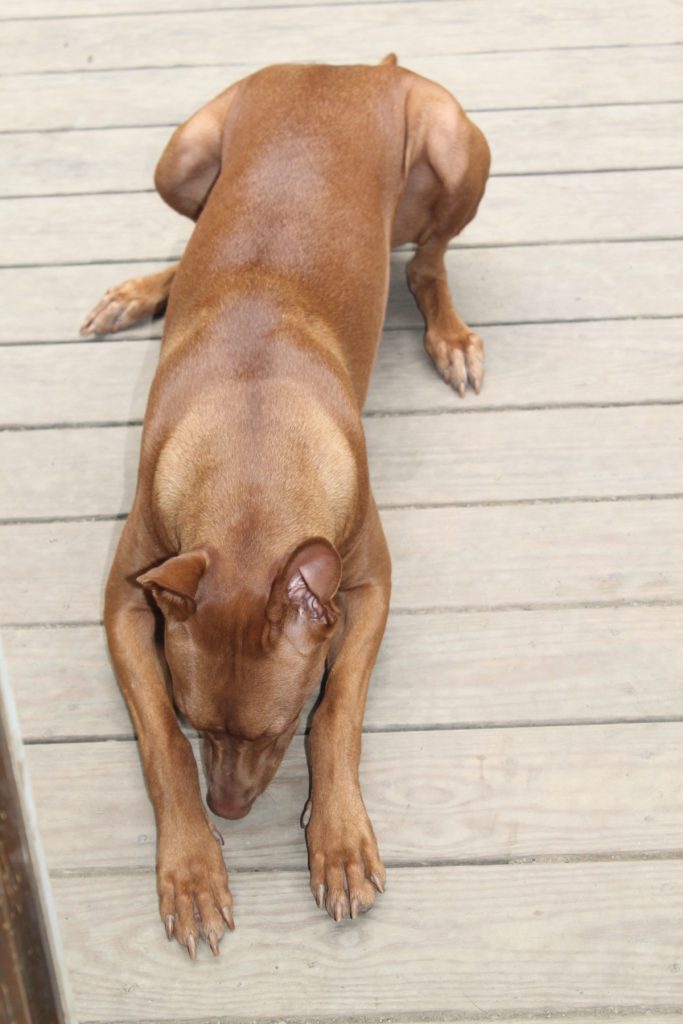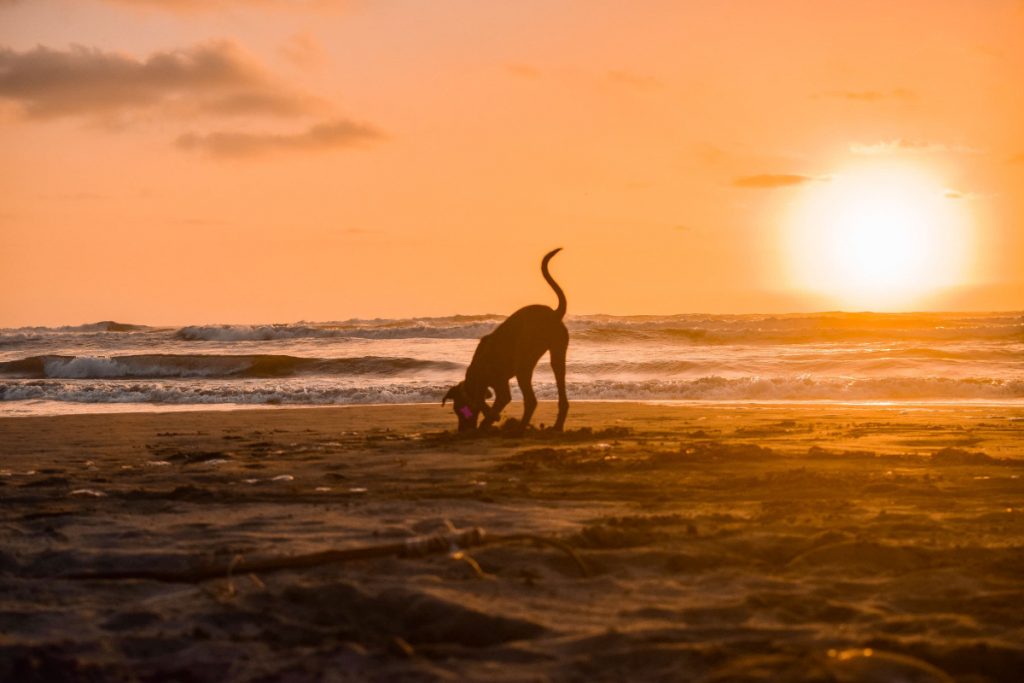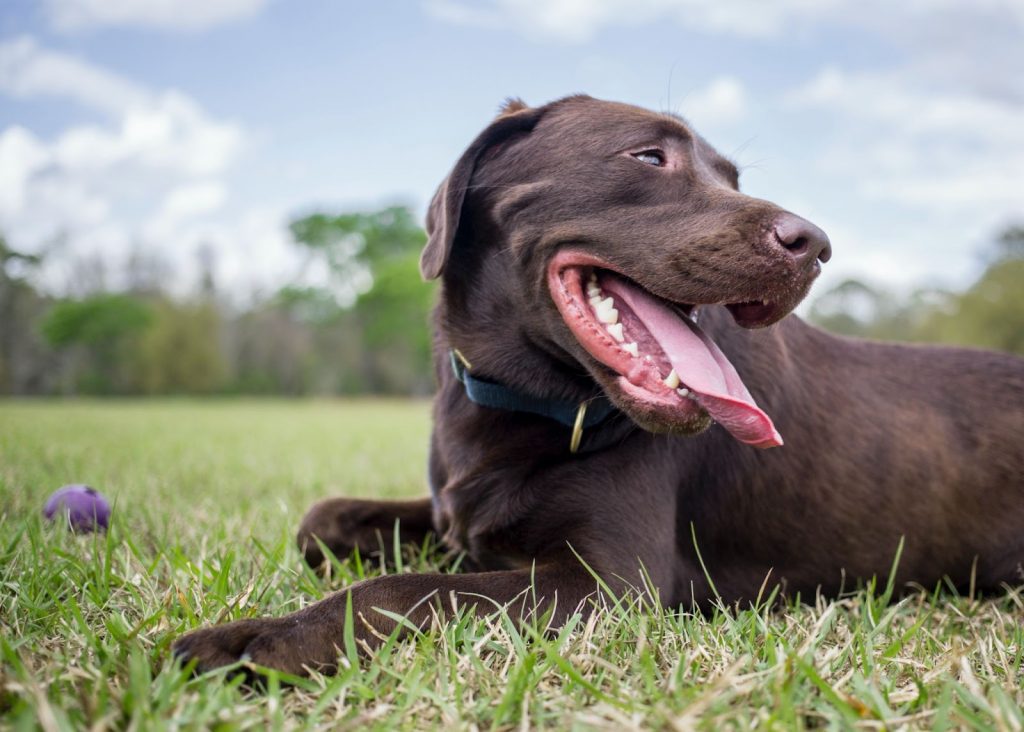
Sunscreen isn't only a concern for us humans! Our beloved senior pups also require protection from the sun's harmful UV rays. In this article, we'll delve into the realm of natural dog sunscreen and highlight its vital role in safeguarding our aging canine companions, particularly if you enjoy outdoor adventures like hunting or hiking) or hiking with them.
From understanding the importance of sun protection to choosing the right product and learning how to apply it effectively, we've got you covered. So, let's dive in and discover all you need to know about dog sun safety!
Just like humans, dogs are susceptible to the negative effects of too much sun exposure. The sun's rays can damage their skin, leading to painful sunburns, heatstroke, and even an increased risk of skin cancer. It's crucial to be aware of the dangers of sun exposure to our furry friends.
When it comes to sun protection for dogs, it's important to understand that certain breeds are more prone to sunburns and skin conditions caused by UV rays.
Breeds with short or thin hair, light-colored fur, or exposed skin areas such as the nose and ears are especially at risk. The lack of natural protection, such as a thick coat, makes them more vulnerable to the harmful effects of the sun.
Prolonged sun exposure can cause redness, peeling, and discomfort in dogs. Just like humans, sunburns can be painful and may require medical attention.
Additionally, excessive heat from the sun can lead to heatstroke, a life-threatening condition that requires immediate veterinary care. It's essential to take preventative measures to protect our furry companions from the dangers of the sun.

Did you know that dogs can also develop skin cancer as a result of sun exposure? The most common type of skin cancer in dogs is called squamous cell carcinoma, which often affects areas with less hair, such as the belly or groin. This type of cancer can be aggressive and spread to other parts of the body if not detected and treated early.
Furthermore, sun exposure can weaken a dog's immune system, making them more susceptible to various skin infections and allergies.
The sun's UV rays can damage the DNA in skin cells, leading to mutations that can trigger the development of skin conditions. It's important to closely monitor your dog's skin and seek veterinary attention if you notice any unusual changes or growths.
Applying sunscreen to your dog may seem unusual. Still, it can make a significant difference in their sun safety. Dogs' skin is delicate and sensitive, just like ours, which means they can suffer from the same sun-related health issues.
By using sunscreen specifically formulated for dogs, you can provide an additional layer of protection against harmful rays and promote their overall well-being.
When choosing a sunscreen for your furry friend, make sure it is safe for dogs and does not contain ingredients that can be toxic to them, such as zinc oxide or para-aminobenzoic acid (PABA).
Look for sunscreens specifically designed for dogs with a high sun protection factor (SPF). It's important to apply sunscreen to areas that are most vulnerable to sunburn, such as the nose, ears, belly, and any exposed skin patches.
In addition to sunscreen, other ways to protect your dog from the sun. Consider providing shade in your yard or when you're out for a walk, using doggy sun hats or protective clothing, and scheduling outdoor activities during the cooler parts of the day. Remember, prevention is key when it comes to keeping your furry companion safe from the harmful effects of the sun.
Check out the video below for more tips:
When selecting sunscreen for your furry friend, opting for a natural product is always a wise choice. Natural sunscreens typically contain ingredients sourced from nature that provide effective protection without the potentially harmful chemicals found in traditional sunscreens.
But what exactly makes a sunscreen 'natural'? Let's dive into the details and explore the common ingredients found in natural sunscreens.

Natural sunscreens for people often include ingredients such as zinc oxide, titanium dioxide, coconut oil, shea butter, and aloe vera. These components work together to create a barrier that blocks and reflects the sun's harmful UV rays. However (and this is very important), neither zinc oxide nor titanium dioxide is safe for dogs. So do not put your own natural sunscreen containing these ingredients on your pup.
Coconut oil is another popular ingredient in natural sunscreens, and it is actually pet-safe. The oil is known for its antimicrobial properties, which can help protect the skin from harmful bacteria and other microorganisms. Unfortunately, contrary to popular belief, it provides ZERO protection from UV rays according to studies.
Shea butter, derived from the nuts of the shea tree, is a rich and creamy ingredient that actually does provide some protection (SPF 6-10). It is highly moisturizing and helps to soothe and protect the skin from dryness and irritation. Shea butter also contains natural antioxidants that can help fight against free radicals and promote healthy skin.
Aloe vera, a plant known for its soothing and healing properties, is also commonly added to natural sunscreens. It helps to calm and hydrate the skin, reducing redness and inflammation caused by sun exposure. Aloe vera also contains vitamins and minerals that nourish the skin, leaving it feeling soft and supple.
Natural sunscreens offer several advantages over their chemical counterparts. They are less likely to cause skin irritation or allergic reactions, making them ideal for dogs with sensitive skin. The gentle and natural ingredients found in these sunscreens are generally well-tolerated by most pets.
Chemical sunscreens, on the other hand, often contain ingredients like oxybenzone, avobenzone, and octinoxate, which can be irritating to the skin and may cause adverse reactions in some animals. These chemicals can also be absorbed into the bloodstream, raising concerns about their potential long-term effects on health.
Additionally, natural sunscreens are environmentally friendly, as they do not contain harmful chemicals that can harm aquatic life or damage ecosystems. When we apply chemical sunscreen and go for a swim, the chemicals can wash off our bodies and into the water, potentially causing harm to marine life. Natural sunscreens provide a safer alternative that is less harmful to the environment.
So, when it comes to protecting your furry friend from the sun's harmful rays, choosing a natural sunscreen is beneficial for their skin and the environment. Look for sunscreens that contain these natural ingredients and enjoy the great outdoors with peace of mind!
When selecting a natural sunscreen for your dog, the single most important factor is safety. Remember, what makes a good natural sunscreen for people doesn't always make a good one for pups.
Once you've narrowed down your options to only safe picks, consider factors such as your dog's breed, skin type, and individual needs.
Some sunscreens are specifically formulated for certain breed types (such as dogs with long hair, short hair, or even no hair) or offer varying levels of sun protection.
Additionally, look for sunscreens that are water-resistant and easy to apply.

Now that you have the perfect natural sunscreen for your dog, it's time to learn how to apply it effectively.
Start by familiarizing your dog with sunscreen. Begin with small amounts and gradually increase as they become comfortable.
Gently apply sunscreen to exposed areas such as the nose, ears, belly, and any other areas with thin or exposed skin. Massage the sunscreen in using circular motions to ensure even coverage.
When applying sunscreen to your dog, pay special attention to commonly overlooked areas such as the paw pads, groin area, and underbelly.
These areas are often neglected but are equally susceptible to sunburns and need adequate protection.
While sunscreen is an essential tool for protecting your dog from the sun, there are additional measures you can take to ensure their safety.
Investing in lightweight, sun-protective clothing and accessories such as hats, shirts, and sunglasses can provide additional protection for your furry friend.
Look for items specifically designed for dogs that offer UV protection and ensure a comfortable fit.
Lastly, consider creating a sun-safe environment for your dog. Provide shaded areas in your backyard or outdoor spaces where your dog can retreat to when the sun is at its strongest. This will help them find relief from the heat and reduce their overall sun exposure.
By understanding the importance of sun protection, choosing the right natural sunscreen, and taking additional sun safety measures, you can ensure your furry friend stays sun-safe all year round. Remember, their health and well-being are in your hands, so be proactive in protecting them from harmful UV rays.


info@seniorpups.com
Copyright 2023 – All Rights Reserved by Senior Pups